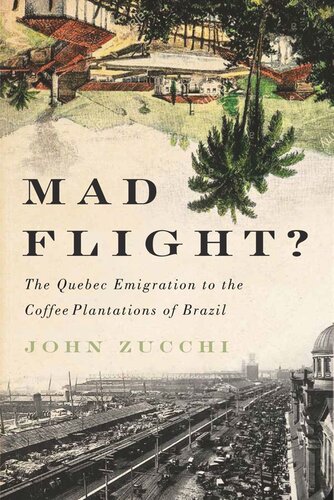

Most ebook files are in PDF format, so you can easily read them using various software such as Foxit Reader or directly on the Google Chrome browser.
Some ebook files are released by publishers in other formats such as .awz, .mobi, .epub, .fb2, etc. You may need to install specific software to read these formats on mobile/PC, such as Calibre.
Please read the tutorial at this link: https://ebookbell.com/faq
We offer FREE conversion to the popular formats you request; however, this may take some time. Therefore, right after payment, please email us, and we will try to provide the service as quickly as possible.
For some exceptional file formats or broken links (if any), please refrain from opening any disputes. Instead, email us first, and we will try to assist within a maximum of 6 hours.
EbookBell Team

5.0
98 reviewsOn 15 September 1896, nearly a thousand people prepared to board a steamer in the port of Montreal, headed for Santos, Brazil, and on to the coffee plantations of São Paulo, while a crowd of a few thousand pleaded with them to stay. Families were split as wives boarded without husbands, or husbands without wives. While many prospective migrants were convinced to get off the boat, close to five hundred people departed for South America. Ultimately the experience was a disaster. Some died on board the ship, others in Brazil; yet others became indigent labourers on coffee plantations or beggars on the streets of São Paulo. The vast majority returned to Canada, many of them helped back by British consular representatives. While the story was widely covered in the international press at the time, a century later it is virtually unknown. In Mad Flight? John Zucchi consults a range of primary and secondary sources, including archival material in Canada, Brazil, France, and the United Kingdom, to recreate the stories of the migrants and open up an important research question: why do some people migrate on impulse and begin a journey that will almost inevitably end up in failure? Historical studies on migration most often account for successful outcomes but rarely consider why some immigrant experiences are destined to fail. Mad Flight? uncovers the history of an otherwise little-known episode of Canadian migration to Brazil and provokes further discussion and debate.